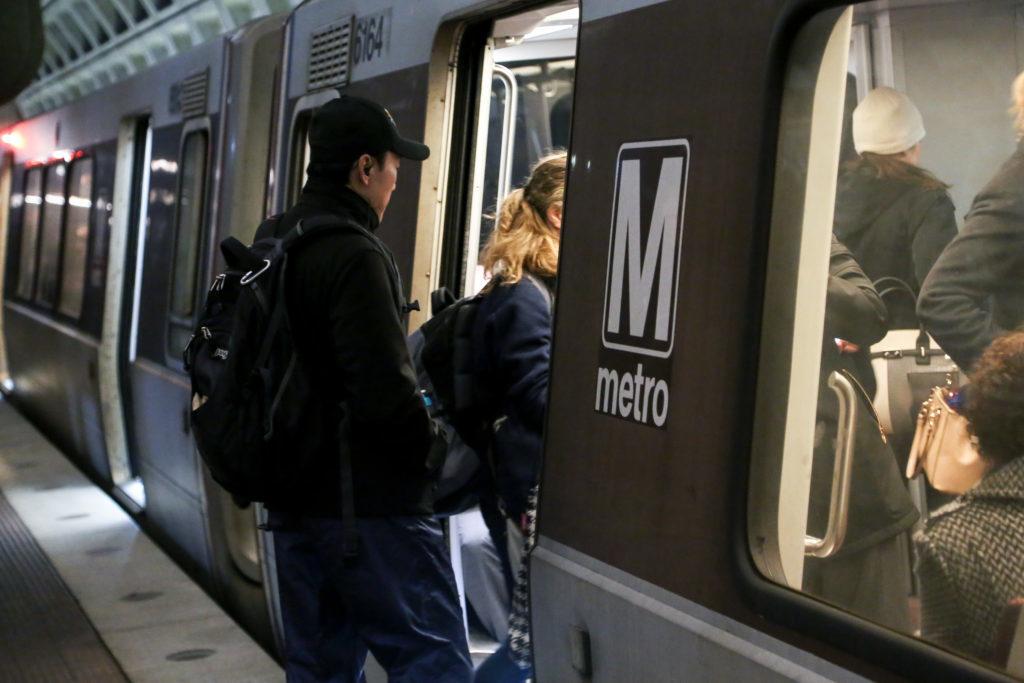WMATA’s plan to eliminate negative balances on fare cards will inconvenience low-income riders, students and faculty say.
Starting Jan. 8, the Washington Metropolitan Area Transit Authority fare system will no longer permit riders to complete rides on the bus or subway with a negative balance on SmarTrip cards. Some students and faculty said the new policy will affect Metro riders who don’t carry change or cannot afford to keep a higher balance on their cards.
If a rider’s card does not have enough money for the fare, the gate will not open and riders will have to add money at an exitfare machine, which will accept only cash and coins, according to WMATA’s website.
Over the last 17 years, unsettled negative balances have cost WMATA about $25 million, according to a release from the agency.
“In an environment where every dollar counts, we are taking a common sense approach to ensure that Metro is properly collecting the value of the transportation it provides in order to reduce the demand on Metro customers and the region for additional funding,” Metro Chief Financial Officer Dennis Anosike said in the release.
Jonathan Gaelen, a freshman music major, said he uses the Metro four to five times a week to explore the city, and he’s had a negative balance on his SmarTrip card about four times.
“I never really think about how much the trip costs until after I have done it,” he said. “I think it will make a major inconvenience for anyone who wants to use the Metro.”
The plan is likely to discourage him from using the Metro because he worries he’ll be stuck if he doesn’t have change or coins to pay the exit fare, he said.
WMATA is asking riders to add enough money for their trip prior to swiping their SmarTrip cards and entering stations. Riders can opt into an auto reload program, which automatically adds value to a rider’s card each time the value drops below $10.
Ananya Vidyarthi, a senior studying international affairs, said the plan will take a way the convenience of not having to worry about the card balance before using the system.
“You don’t always remember what your Metro balance is, so if you’re in a hurry and you have to refill it because you’re 75 cents short, that’s a bit ridiculous,” he said.
Vidyarthi said he uses the Metro twice a week for an internship and has a negative balance about once every two weeks.
“I could see it impacting a lot of riders just because many people do find the Metro quite expensive,” he said.
Robert Baker, the director of performance studies in the GW music department, said the policy would have a more significant impact in the more disadvantaged parts of the District.
“It’s not fair to folks for whom the Metro is their only method of transportation, and they are on a fixed or limited income,” he said in an email Monday. “There are days in the week or month before you get a paycheck, that folks need to get home and don’t have a penny left until the next day’s paycheck.”
In 2010, WMATA banned Metro riders from exiting stations without paying the full fare. After backlash from Metro riders, officials postponed development, shelving the plan until it was proposed again in 2012.
In 2013, the agency agreed that a $1.50 negative limit for Metrorail trips would be enforced.
David Stephen, the communications coordinator for the Amalgamated Transit Union Local 689, which represents transit workers in D.C., said the move will increase rider stress and potentially physical assaults on Metro employees if fare disputes turn violent.
He said the plan could cause economic and accessibility issues, especially affecting people who rely on public transit.
“Carrying a negative balance is a courtesy,” he said. “The fares ought to be paid, but at the same time, Metro should do as much as it can to make sure the experience of riding is the least stressful it can be.”




